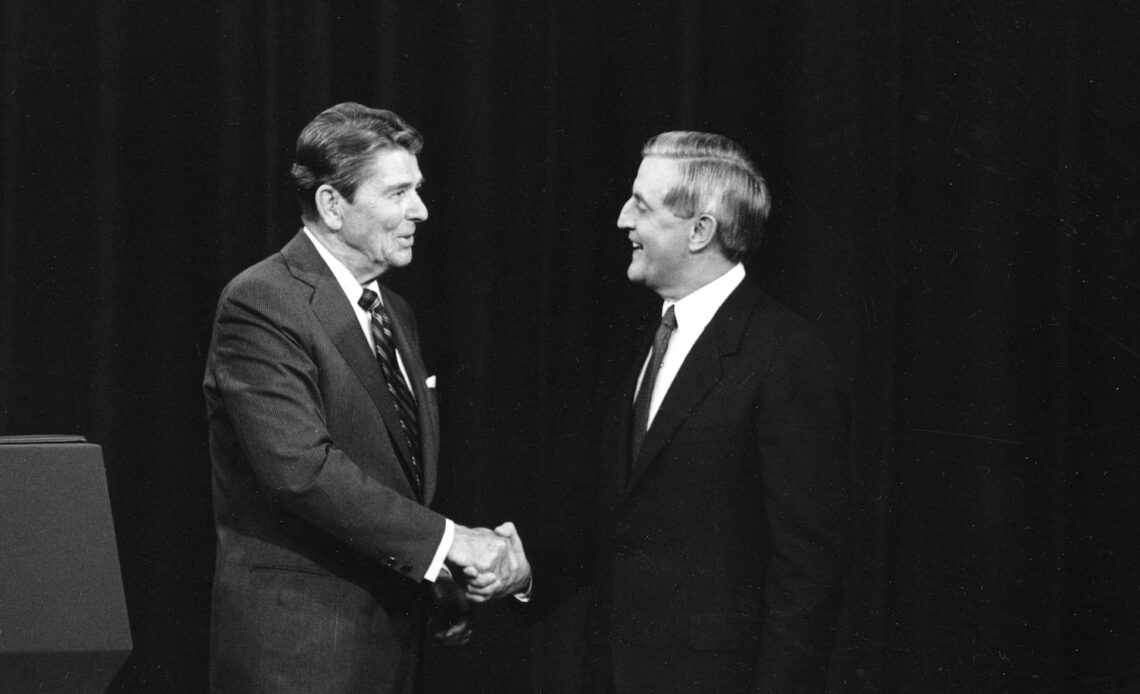The age question for presidential candidates is more than four decades old. President Ronald Reagan answered it with a pledge to resign if he became impaired, and later with a clever joke that reset his campaign from a stumbling debate performance to a 49-state landslide and a second term.
“I will not make age an issue of this campaign,” Reagan said to the question he knew was coming in perhaps the most famous mic-drop moment in campaign history. “I am not going to exploit for political purposes my opponent’s youth and inexperience.”
The audience roared, even Democratic Vice President Walter Mondale laughed — and Reagan’s reelection was back on track.
Today, Democratic President Joe Biden, 81, is struggling for such a redemptive moment after a disastrous debate performance against Republican former president Donald Trump, 77. Those 90 minutes last week set off alarms among Democrats hoping Biden would keep Trump from returning to the White House — and heightened concern among voters long skeptical of how either elderly man would govern a complex nation of more than 330 million people for four more years.
At its heart, the question — how old is too old to be president? — is about competence. And Americans have never had wider personal experience with the effects of aging than they do today.
A surge of retiring baby boomers means that millions more Americans know when they see someone declining. For many, this widespread experience made Biden’s halting performance during Thursday’s debate a familiar reality check.
Trump seemed more vigorous, even though he lied about or misstated a long list of facts. When he challenged Biden to a cognitive test, Trump flubbed the name of the doctor who had administered his.
“Is this an episode, or is this a condition?” Rep. Nancy Pelosi, D-Calif., 84, wondered on MSNBC, reflecting the question dominating Democratic circles this week. “It’s legitimate — of both candidates.”
Reagan faced the same questions even before he was elected as the oldest president to that point. In 1980, at 69, he pledged to resign if he sensed serious cognitive decline while in office.
“If I were president and had any feeling at all that my capabilities had been reduced before a second term came, I would walk away,” he told the New York Times on June 10, 1980. “By the same token, I would step down also.”
That didn’t happen. Reagan served two full terms, leaving office in 1989. He announced in 1994 that he had been diagnosed…
Click Here to Read the Full Original Article at ABC News: Health…

